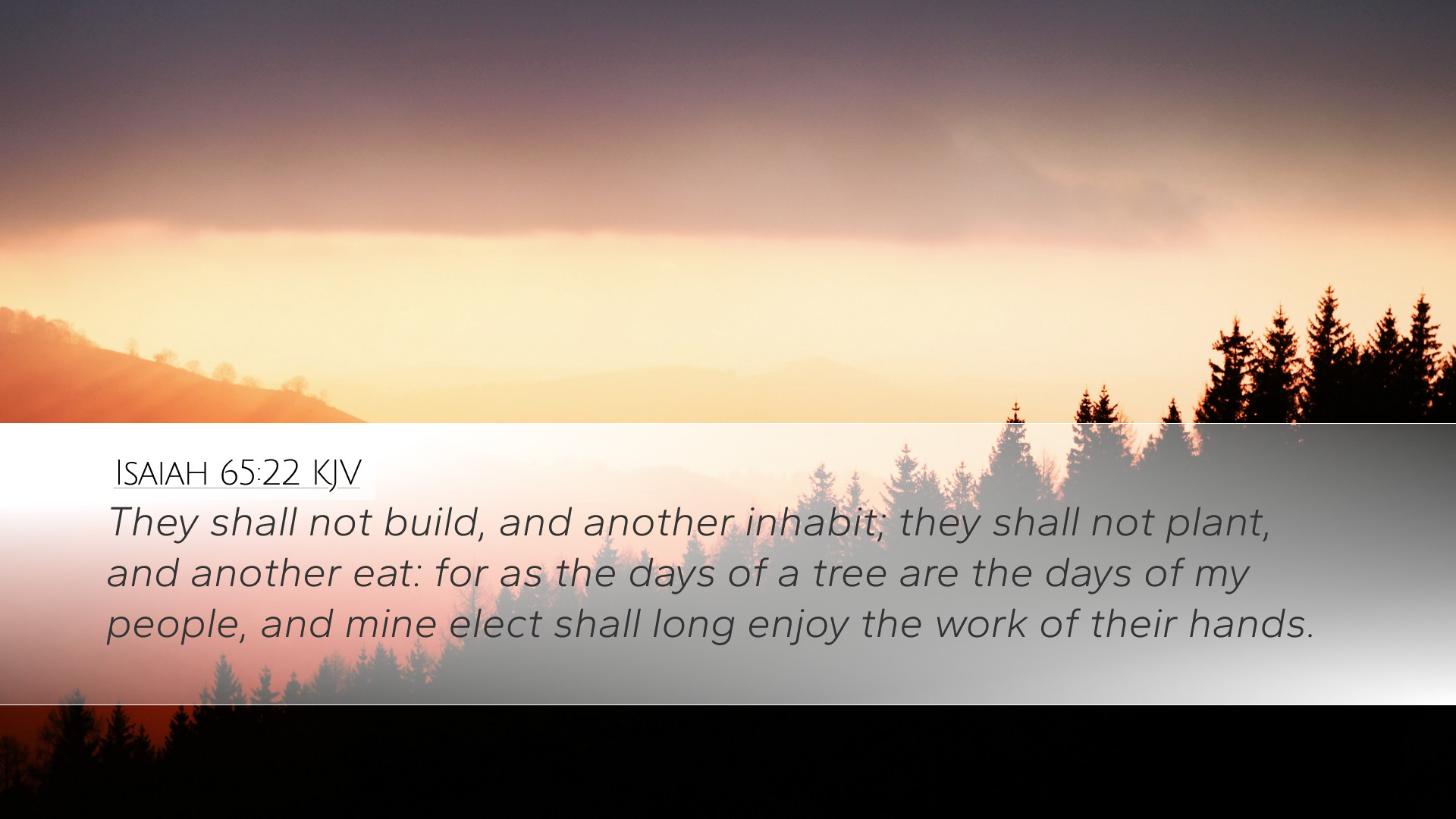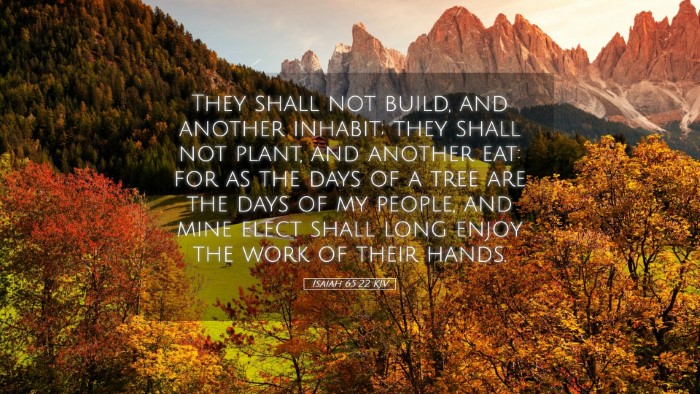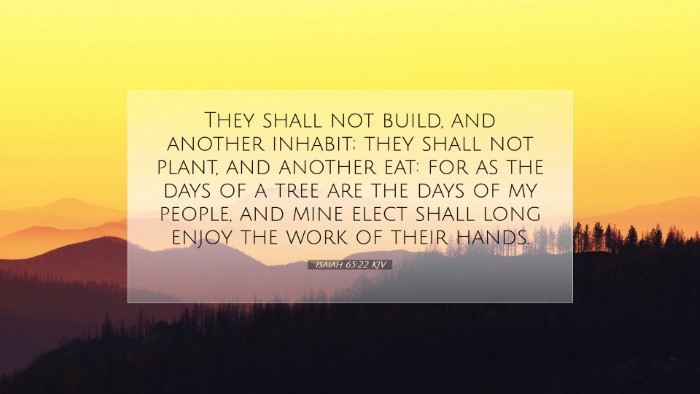Commentary on Isaiah 65:22
Introduction
Isaiah 65:22 encapsulates the promise of God regarding the blessings of His people in the context of new creation and restoration. This verse sits amid prophetic declarations concerning the coming Messiah and the transformative age that follows. The themes reflected in this verse resonate with the gospel of hope, pointing to the enduring nature of God's covenant with His people.
Verse Text
"They shall not build, and another inhabit; they shall not plant, and another eat: for as the days of a tree are the days of my people, and mine elect shall long enjoy the work of their hands." (Isaiah 65:22)
Exegesis of the Verse
This verse presents several important theological insights that can be unpacked through the contributions of notable biblical commentators.
1. The Assurance of Stability
Matthew Henry emphasizes that the promise made in Isaiah 65:22 contrasts sharply with the experiences of Israel during times of judgment and exile, where building and sowing often resulted in loss to others. In a restored state, the security of their efforts is guaranteed; what is constructed or cultivated by God's people will be enjoyed by them alone. This speaks to the permanence of their heritage and security in God's kingdom.
2. The Symbolism of Work
Albert Barnes expands further on the idea of labor with meaning and enjoyment. The verse underscores that not only will the people build and plant, but they will also benefit directly from their labor, reflecting God's justice and the restoration of their fortunes. This resonates deeply, reminding us that God’s blessings allow us to reap what we sow, reinforcing a sense of personal investment and divine favor.
3. The Lifespan Comparison
Adam Clarke adds to the discussion by noting the metaphor of the tree. In biblical literature, trees often symbolize strength and longevity. The comparison of God's people’s lifespan to that of a tree suggests a newly established condition where they will thrive and enjoy extended and fruitful years. This implies both physical longevity and spiritual vitality, indicating they will dwell in security under God's blessings.
Theological Implications
The implications of Isaiah 65:22 extend into significant theological themes that are relevant for pastors and scholars alike.
1. Hope in Restoration
- Theme of Restoration: This verse reflects a broader biblical narrative of restoration, where God's covenant promises come to fruition. It reassures believers that God will fulfill His promises, providing hope in times of despair.
- New Creation: The context of Isaiah portrays God’s intention to create a new heavens and new earth, where righteousness dwells, and His people will experience a reality unmarred by sin.
2. Divine Justice and Reward
- Justice: The assurance that no one will take advantage of the labor of God’s people indicates a future where equity is established. This assurance points to God’s justice prevailing in all creation.
- Reward for Labor: The acknowledgment that the elect will "long enjoy the work of their hands" acts as an affirmation of God honoring their efforts, making it clear that labor in the Lord is never in vain (1 Corinthians 15:58).
3. Community and Belonging
- Belonging: In emphasizing personal ownership and enjoyment of one’s work, there is also an implicit sense of community restored. A society where individuals can thrive collectively lies at the heart of God's intended order.
- Elect of God: The reference to "mine elect" highlights God's chosen people, a theme that runs throughout scripture, reaffirming the relationship between the divine and His chosen ones as irreplaceable and enduring.
Conclusion
Isaiah 65:22 stands as a beacon of hope and assurance. The promise of longevity, fruitful labor without the loss of joy, and the certainty of God’s justice provides immense encouragement to believers. It illustrates a future where God's kingdom reigns, characterized by stability, fulfillment, and communal joy. For pastors, students, theologians, and Bible scholars, this verse serves as a profound reminder of the faithful promise of restoration, urging us to live in light of eternity and urging us toward a life of hope and diligent work in the Lord.


